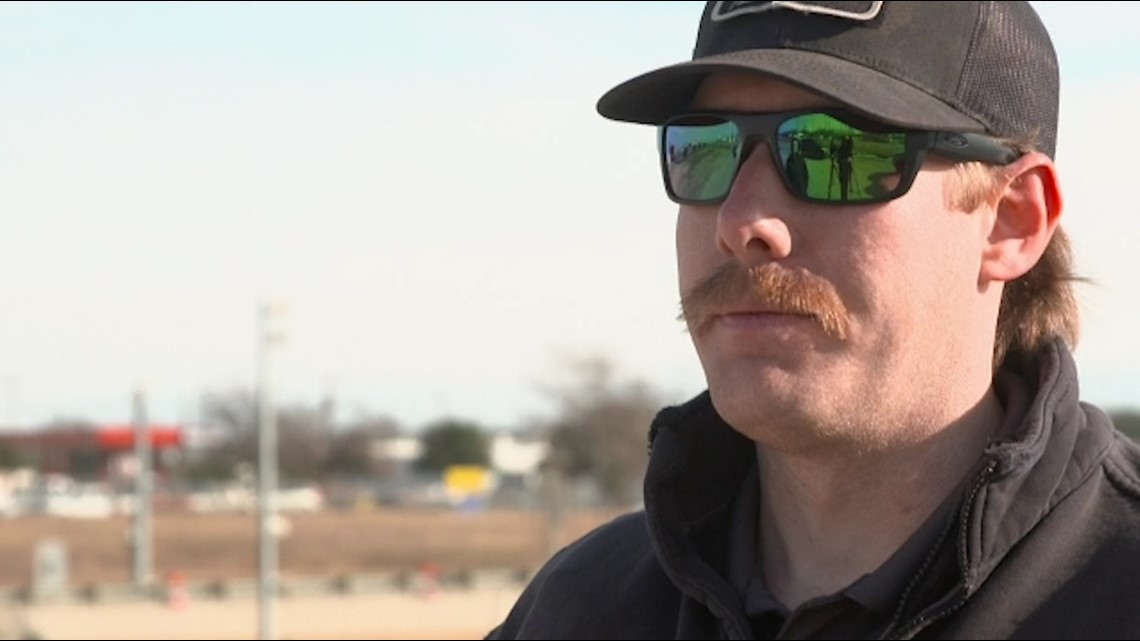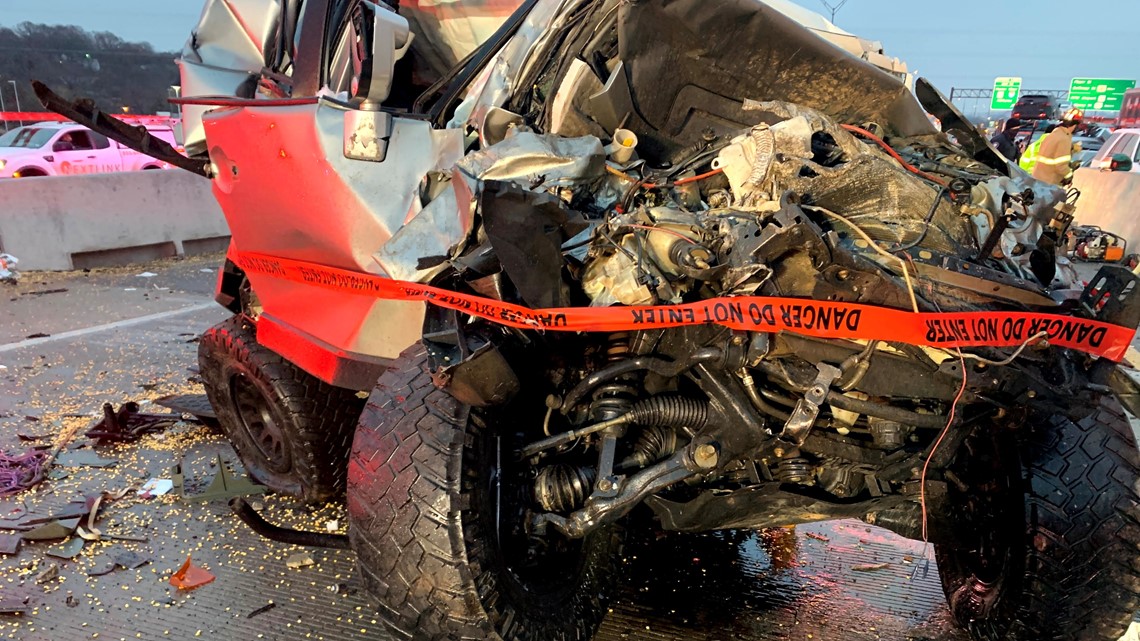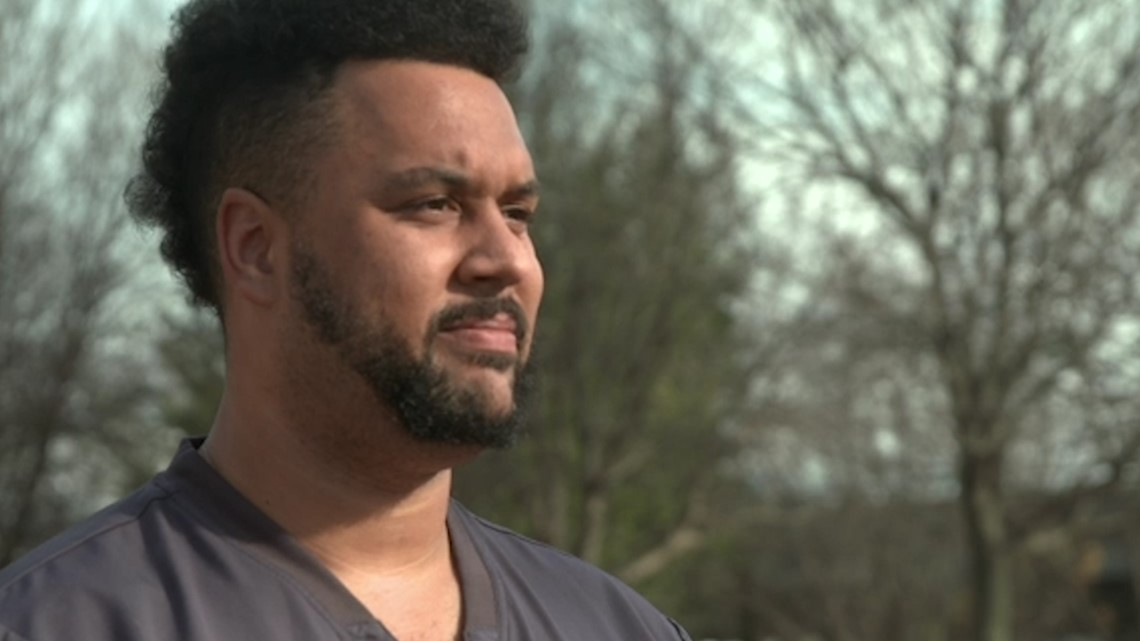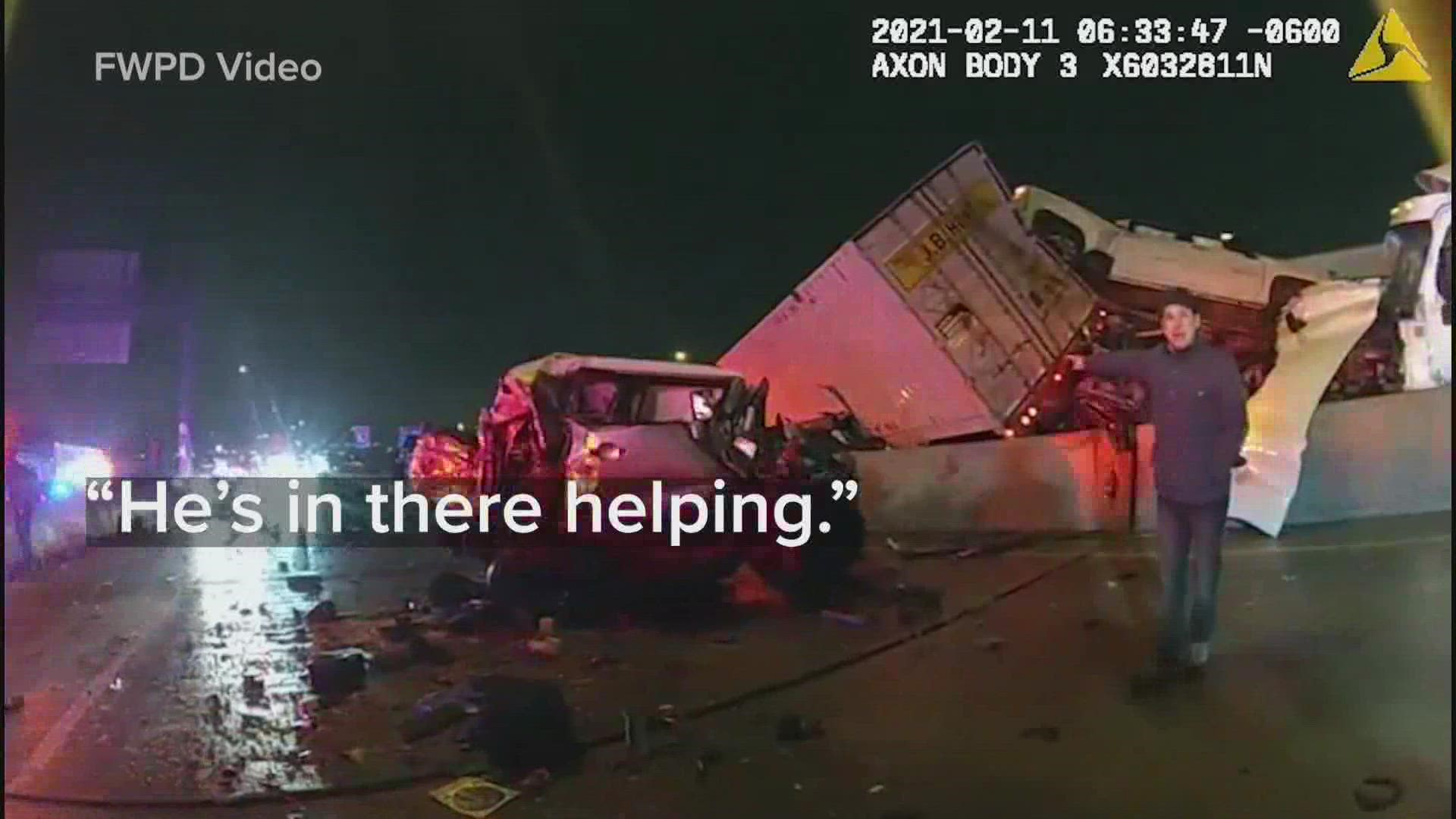FORT WORTH, Texas — Trey McDaniel still wonders how much different his life would be if he stayed in bed one minute longer on Feb. 11 last year.
“You just play the events over and over and over in your head,” he said. “You know, ‘what could I have done differently?’”
He was driving down Interstate 35W South, his normal route to work at MedStar as a paramedic. Jesse Robinson wasn’t far behind and was headed to JPS Hospital where he’s an EMT.
“Everything was fine for like the first 30 minutes,” Robinson said.
Two exits before reaching downtown Fort Worth, though, there’s a bend to the left and a hill drivers can’t see over.
At the top, the express lanes were coated in black ice. With no previous issues on roads, drivers were going the posted 75 mph limit. By the time anyone could see brake lights at the top, little could be done.
“That’s when I tried to hit the brakes, and nothing was catching,” Robinson said.
“I was sliding forever,” McDaniel said. “I must’ve skid 300, 400 yards.”


McDaniel slid along the concrete barrier, trying to use the friction to stop before bumping the back of the truck in front of him, but he was trapped inside his silver Toyota FJ with his door up against the barrier when he glanced into the review mirror. An 18-wheeler was barreling towards the back of his car and there was no way to get out.
“I saw the sparks, the headlights,” he said. “Your stomach kind of drops a little bit.”
Video from a driver across the interstate captured McDaniel’s car being thrown out of the express lane and onto the northbound express lane. The truck in front of him was flipped.
“When I opened my eyes, I couldn't believe - one - that I was alive and - two -that, you know, nothing necessarily was broken,” he said.


911 calls from the morning captured the panic of drivers unaware of the scope of the crash who were also trapped inside their vehicles as the pileup continued to grow.
“I hit a patch of ice, I guess,” one caller said. “The airbag hit me in the face pretty hard.”
“They just keep hitting and hitting and hitting,” a caller told an operator.
“There’s a gentleman in the car next to me,” a woman said. “He’s just screaming.”
“I think the screams were the – the most bone chilling aspect of it,” McDaniel said. “There were still cars that were slamming into each other and you’d hear a crash and then scream; crash, scream. It was very, very surreal.”
Concussed, bleeding, and with an injured ankle, McDaniel crawled out his shattered window and started helping.
“I had so much adrenaline pumping, I just needed to do something - get my hands moving,” he recalled. “It was the worst nightmare I could have ever imagined.”
In all, 133 cars, trucks and 18-wheelers slammed into a pile stretching almost a quarter mile.
“There was so much mayhem and carnage, I was like, 'there’s not enough hands to help, I need to start helping, too,'” Robinson recounted. “I just started going around and inserted myself wherever I could. There was a girl trying to crawl out of the back windshield because it was busted out and she handed me her purse and like a six-pound little dog out the back window.”


Like McDaniel, Robinson was working off adrenaline.
It would be three hours before that wore off, and he’d learn he’d fractured his spine and dislocated his hip.
Combined, McDaniel and Robinson helped other first responders rescue more than a dozen people from cars before getting care themselves.
Many of those caught up in the crash were wearing scrubs. They were healthcare workers who would end up being treated at the same facilities they were headed in to work at.
“There was no rhyme or reason of how, what was going on, so I was just trying to figure out any way I could get people out,” Robinson said.
In all, six people died:
- Tiffany Gerred, 34, of Fort Worth
- Aaron Watson, 45, of Fort Worth
- Tamara, Mendoza Querales, 46
- Christopher Vardy, 49, of Boyd, Texas
- Michael Wells, 47, of Justin, Texas
- William Williams, 54, of Pahoa, Hawaii


Thirty-six people were taken to the hospital for injuries.
McDaniel didn’t drive the road for a month.
“It goes through my head every single night," he said. "Every single night."
“You cannot train for something like that,” he added.
February 11 would be overshadowed by the devastating statewide storm days later, but those who witnessed it can’t forget it.
“Make sure to be grateful,” Robinson said. “Tell the people that you love that you love them, because you don’t know when it might be the last day.”

